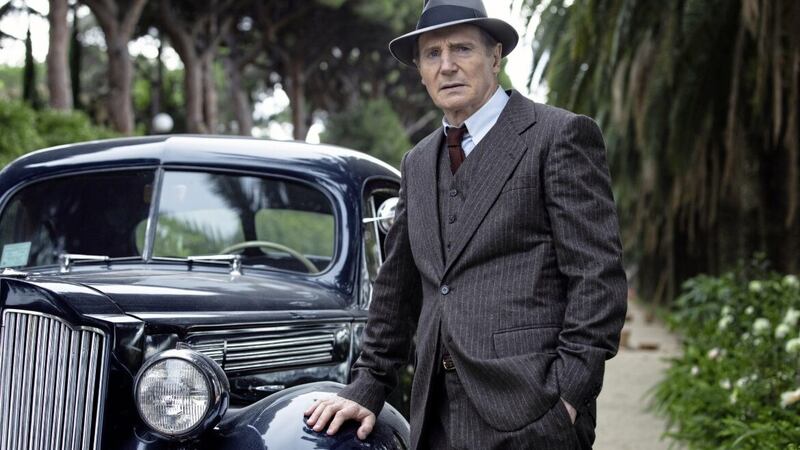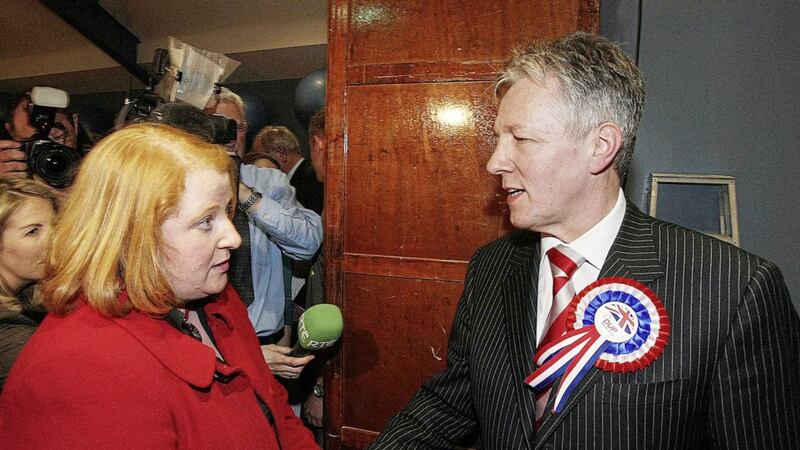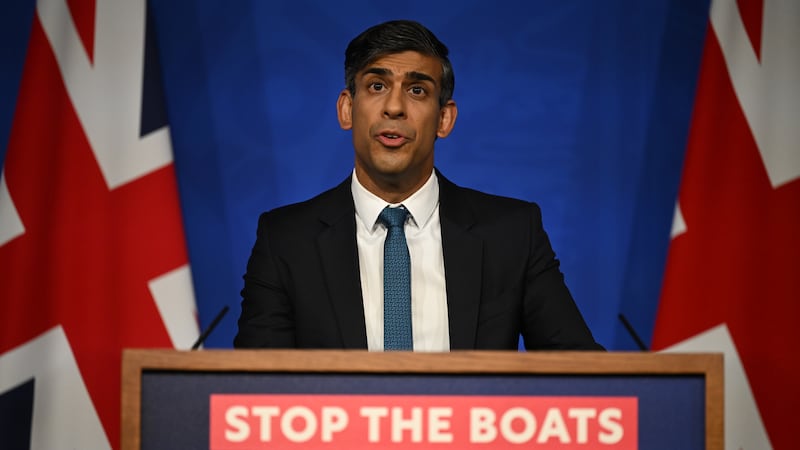IN the last European Parliament election, in May 2019, three members were elected for Northern Ireland: Martina Anderson of Sinn Féin, Diane Dodds from the Democratic Unionist Party, and the Alliance Party leader, Naomi Long. But their memberships came to an abrupt conclusion just over eight months later, at midnight on January 31 2020, when the United Kingdom left the European Union as a consequence of the Brexit referendum vote.
In the same 2019 contest, south of the border, 13 MEPs were elected: five for Fine Gael, two Fianna Fáil, two Greens, one Sinn Féin and three Independents. Two of them, from FF and SF, have moved on to other positions since and been replaced by members of the same party.
Although the Parliament doesn’t get a huge amount of media coverage, it is still an important element of the European Union. Last week I travelled with a group of Irish journalists to Strasbourg, where a plenary session was taking place.
The French city is just across the border from the German town of Kehl and, in his speech on receiving the Nobel Peace Prize in December 1998, SDLP leader John Hume, who was also an MEP, recalled that on his first visit to Strasbourg in 1979 he went for a walk on the bridge from Strasbourg to Kehl.
He stopped half-way across and meditated on the 25 million deaths which resulted from the Second World War. Hume said if he had predicted in the war’s immediate aftermath that, “In 30 years’ time we will all be together in a new Europe... I would have been sent to a psychiatrist.”
Even hardline Brexiteers would presumably admit that the European Union has had a generally positive impact in terms of promoting peace. Sadly, in the aftermath of Brexit, the peace process nearer home has been coming under pressure.
To avoid the re-appearance of customs posts on our land border, which would be an inevitable target for republican dissidents, we got the Irish Sea Protocol instead and this has upset many unionists who feel their position within the UK is being undermined.
In an attempt to resolve this problem, British Prime Minister Rishi Sunak and European Commission President Ursula von der Leyen have agreed the Windsor Framework in order to reduce the customs checks and bureaucracy for goods arriving in the north from Britain.
However, some unionists are still concerned about issues such as the role of the European Court of Justice, which is seen as a threat to Northern Ireland’s status within the UK. In an effort to get around this, the Stormont brake has been devised, in order to give a minority of Assembly-members a chance to raise concerns and possibly even precipitate a UK government veto on new EU laws in Northern Ireland.
Based on conversations with a range of people at the European Parliament, I reached two conclusions. The first is that the EU has no desire to undermine Northern Ireland’s status within the UK: it is simply trying to protect its own single market.
Secondly, while procedures such as the Stormont brake are not a problem, the ECJ cannot be entirely left out of the equation. It is part of the EU’s DNA and restricting it completely in this context would be a bit like the UK removing the monarchy.
Interestingly, despite the Brexit departure, English remains an official and working language in the EU institutions, including the Parliament. Indeed the largest group of MEPs with fluent English are from Ireland. Another insight I got was the degree to which European powers, particularly Germany, rely on the Irish to give them an assessment of the current state of mind in the British government. It is said, for example, that former Fine Gael Taoiseach Enda Kenny and former German Chancellor Angela Merkel had a very good political interaction.
Soon after returning home to Dublin, I got a phone call from London. The LBC radio station wanted to talk about a Sky News interview with Beth Rigby where award-winning actor Liam Neeson, from a Catholic background in the north, was asked about the prospects for a united Ireland in his lifetime.
He said: “I think it will happen... and I think Britain will be pleased. I think it could happen, yeah. But, you know, everybody has to be appeased. The Protestants in the north of Ireland have a strong voice.”
Speaking on LBC’s Lewis Goodall show last Friday night, I said there could indeed be a united Ireland in Mr Neeson’s lifetime, but it shouldn’t be taken for granted. Opinion polls conducted in Northern Ireland in 2022 had all shown a higher figure opposed to unity although the margins ranged from seven to 23 per cent. “There’s still a good bit of work to be done by those who want a united Ireland,” I said.
Asked if a Sinn Féin-led government in Dublin would enhance the prospects of Irish unity, I replied in the affirmative but that a coalition partnership, probably with Fianna Fáil if they were agreeable, would almost certainly be needed to form such an administration. The need for a National Health Service throughout the island and the issue of the block grant which the north currently receives from London would need to be addressed.
Agreeing with the views expressed earlier by Liam Neeson, I said: “It’s still quite a challenge to come up with a plan to persuade, particularly unionists, that a united Ireland would be okay for them.”
Later at the weekend I went to see Neeson’s latest film, Marlowe, directed by my UCD classmate Neil Jordan and featuring the private detective previously played by Humphrey Bogart, Robert Mitchum and James Caan among others. The man from Ballymena may have turned 70 but his robust performance indicated that he is fit and well and likely to enjoy a generous life-span during which he might see a 32-county republic.







